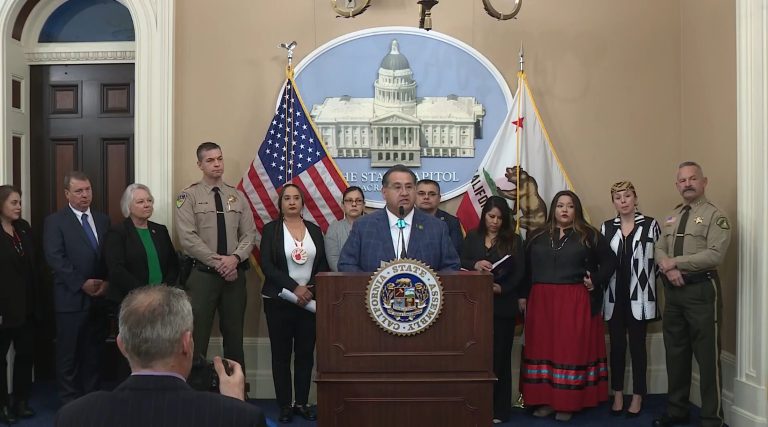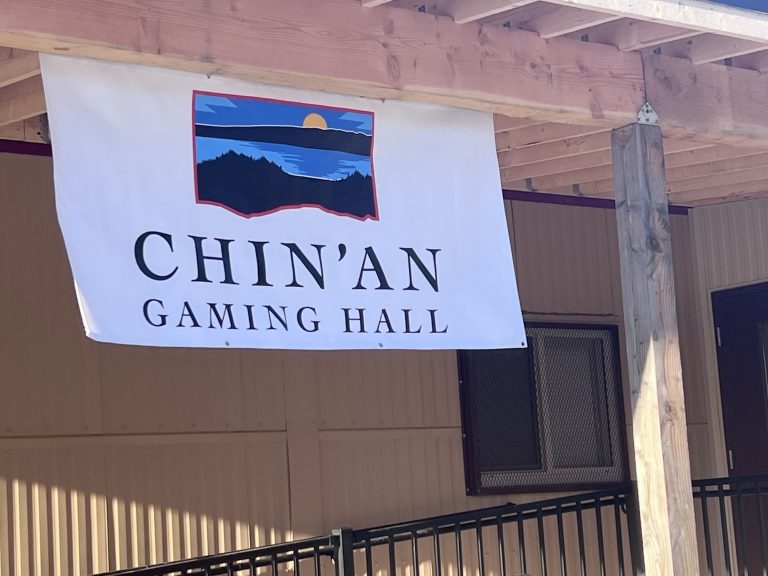Podcast: Play in new window | Download | Embed
Montana’s Missing Persons Task Force has not met since last summer despite the state legislature funding the group for the next decade.
Montana Public Radio’s Ellis Juhlin reports the Department of Justice was delayed in hiring a lead position for the work.
State lawmakers last year passed two bills carried by Montana’s American Indian Caucus to help missing and murdered people in Montana.
But the state’s justice department did not hire a leader for the task force until this month and has not spent any of the funding allocated for training local search and rescue groups.
According to 2023 state data, Indigenous people make up nearly 7% of the population and make up a quarter of Montana’s missing persons cases.
Montana originally created an MMIP task force in 2019 to address the ongoing crisis.
Now, with a full-time coordinator hired, the state is redoing the makeup of the group to run for the next ten years.
A spokesperson for the department said, with the coordinator hired, they are in the process of appointing members and reaching out to tribes to nominate representatives for the missing persons task force.
Montana’s Department of Justice says it expects to have the group’s first meeting this summer, and then begin training search and rescue groups in the fall.
 Getting Native voters to the polls and tribal issues are among priorities of tribal leaders across the country.
Getting Native voters to the polls and tribal issues are among priorities of tribal leaders across the country.
The Native vote was among topics at this year’s National Congress of American Indians winter session in Washington.
Andie Vigliotti has the story from Washington about tribal resilience despite concerns ahead of November’s election.
As Election 2024 heats up, many Native Americans are already feeling neglected.
Michelle Downey is a tribal council member of California’s Round Valley Indian Tribal Administration. She says candidates need to visit Indian Country.
https://www.facebook.com/watch/?v=830925671740951
“The thing is that nobody’s coming to us to say what they’re going to be doing for us as a Native community. We’re one of the largest reservations in Northern California and we have 5,000 tribal members. So I would think that it would only benefit them when they would come to us.”
Nationwide, Republicans have tried to unwind mail-in voting measures and have enacted more restrictive voter ID laws.
Anissa Martin is an organizer with NDN Collective from the Pine Ridge Indian Reservation in South Dakota. She says new barriers only compound old struggles.
“My rez is like over 2,000,000 acres and transportation access is a huge thing with voting.”
Martin says IDs matter.
“I don’t think they allow tribal IDs to vote which has been a huge problem.”
Genocide is on the minds of many Native youths who feel solidarity with the people of Gaza, according to NCAI Youth Commission Co-President Yanenowi Logan.
“We cannot remain silent or pay no heed to the massacre in Gaza when our ancestors suffered a similar genocide.”
Ashley Hemmers is an enrolled member of the Fort Mojave Indian Tribe. She says no matter who wins in November, tribes aren’t going anywhere.
“We always say, at Fort Mojave, we want partners that respect tribal sovereignty, so if you respect tribal sovereignty, that’s what we’re looking for. It’ll make our consultation process easier. If you don’t respect it, then it just means that we have a capacity gap and we’ll either have to help you understand or wait you out.”

University of New Mexico Native American Studies faculty. (Courtesy UNM Newsroom)
The University of New Mexico is celebrating 20 years of offering a Bachelor of Arts in Native American Studies.
An event is planned for next week in Albuquerque to mark the milestone with the theme “Looking Back, Moving Forward: 20 Years of the Native American Studies Bachelor of Arts Degree.”
The symposium will feature a panel of alumni to discuss how they’re using their degrees.
They also hope to inspiring others to learn more about the bachelor degree program.
Get National Native News delivered to your inbox daily and stay up-to-date on the 2024 Native Vote. Sign up for our daily newsletter today.



